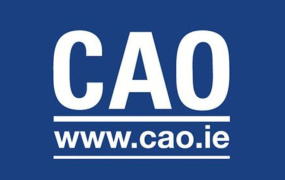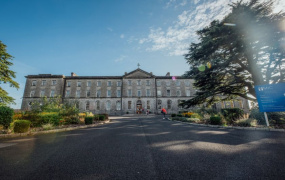Search
Use search box below to look for information on the Mary Immaculate College website. There are some helpful links to common search queries above it. Keep an eye out for the 'Ask a Question' function on certain pages and sections where you can pose specific queries to MIC staff (and see previous questions and answers underneath the question box).
The MIC 2023-24 Annual Report - Looking Ahead - Strategic Planning for 2030
Bronnadh beagnach leathmhilliún euro i scoláireachtaí agus i sparánachtaí ar mhic léinn, ar chéimithe agus ar alumni Choláiste Mhuire gan Smál (CMgS) ag Searmanas Bronnta bliantúil an Choláiste ar an Máirt 29 Mí na Samhna. Sa tsuim airgid is mó a bronnadh riamh ag ócáid den tsaghas seo i gCMgS, dhein lán an tí de lucht féachana in Amharclann Chrann Teile ar champas Luimnigh CMgS ceiliúradh ar ghaiscí, acadúil nó eile, céad tríocha cúig mac léinn agus céimí.
Explore MIC libraries range of online resources for maps and placenames, which includes: Google Maps, GeoHive, MapQuest, Perry-Castaneda Library Map Collection, OSI Historical mapping, Placenames Database of Ireland, and Northern Ireland Placename Project.
An interdisciplinary symposium on the topic of ‘Irish People in Great Britain (1689-Present)’ taking place at Mary Immaculate College on 12 March 2024 has issued its Call for Papers with a closing date of 15 January next.










